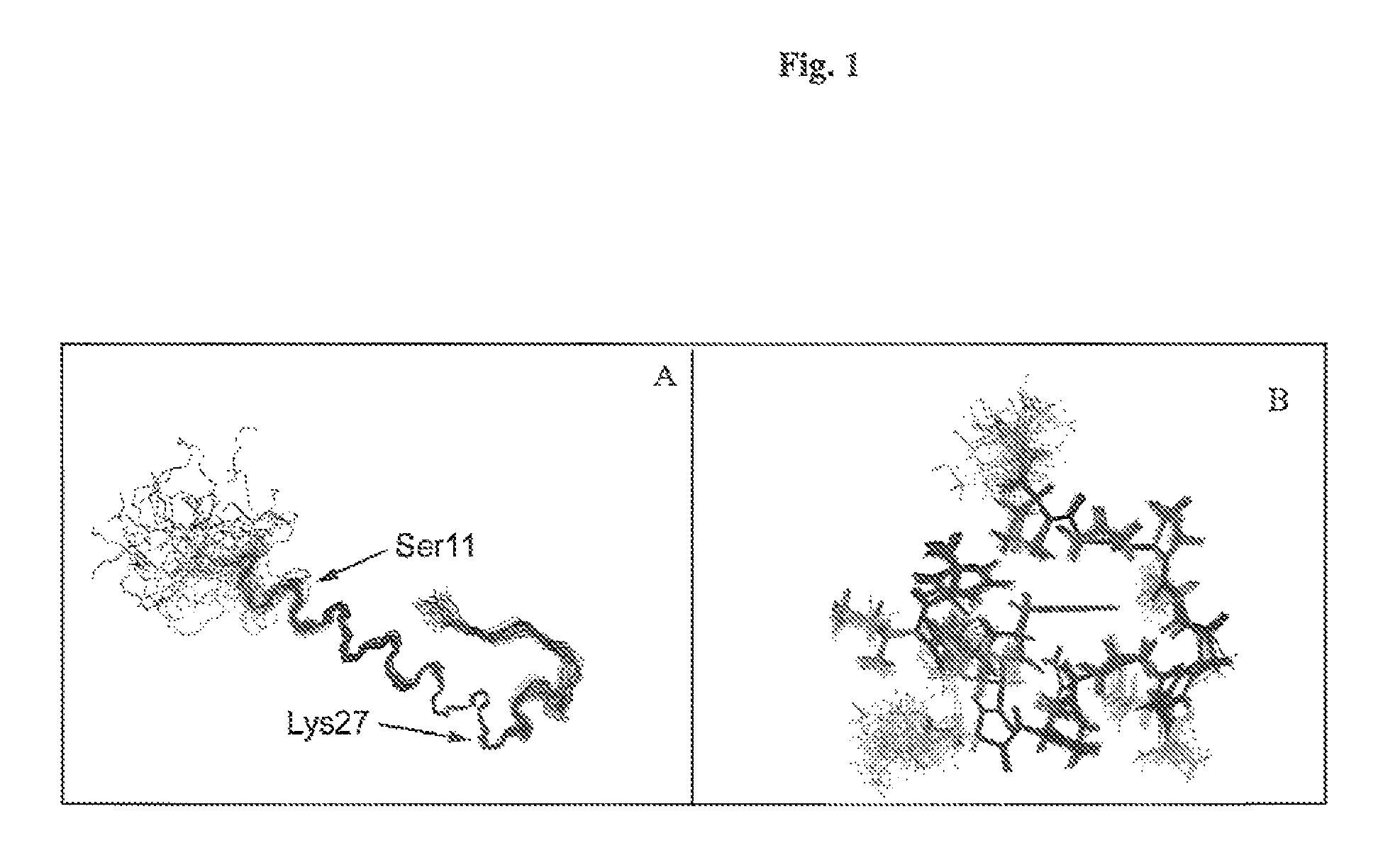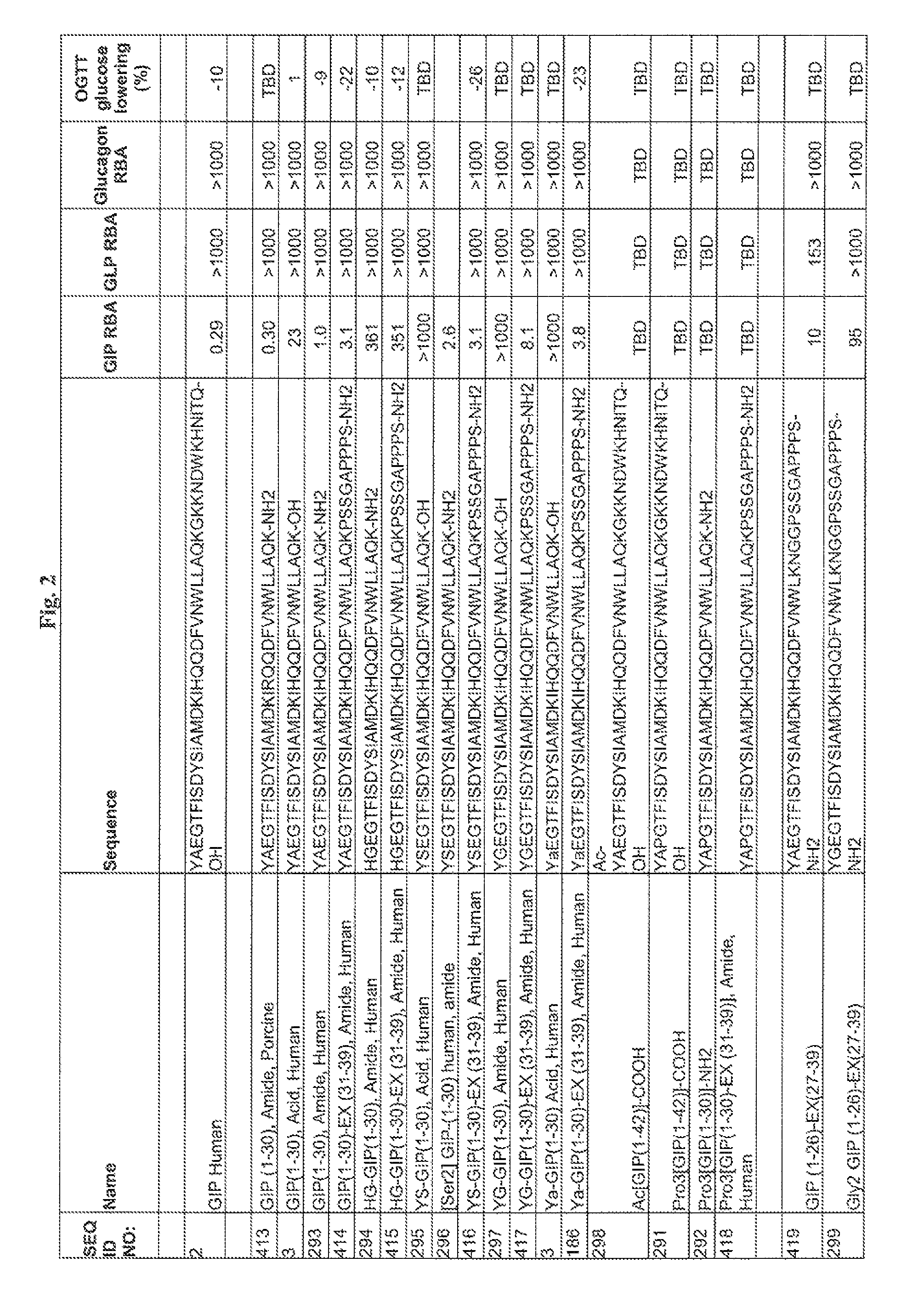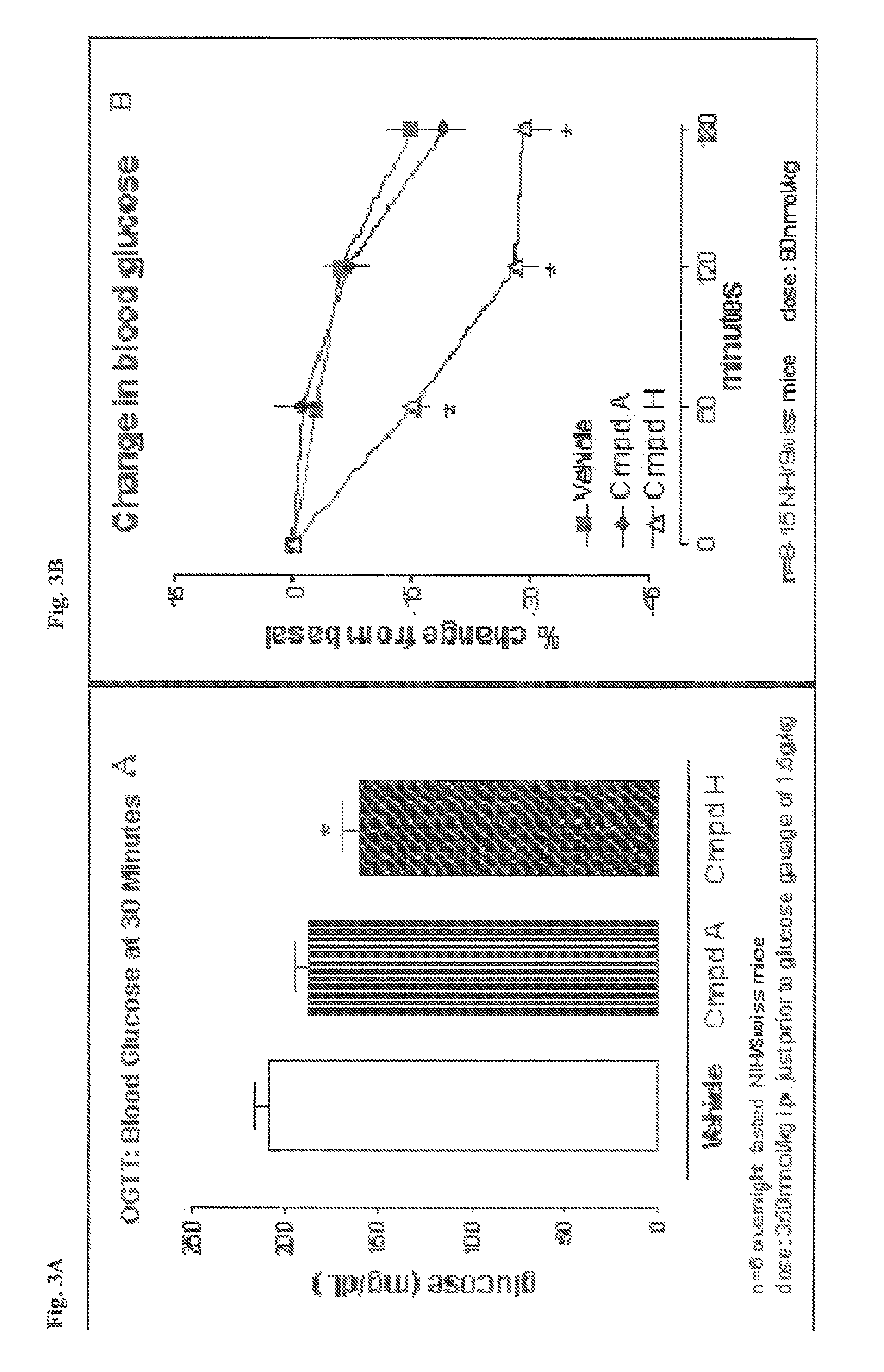GIP analog and hybrid polypeptides with selectable properties
a hybrid polypeptide, gastric inhibitor technology, applied in the field of peptide chemistry and pharmaceuticals, can solve the problems of lipid metabolism, no clear evidence of effect, and clinical use of gip has not been significantly advanced, so as to reduce gastric emptying, increase insulin secretion, and reduce plasma glucos
- Summary
- Abstract
- Description
- Claims
- Application Information
AI Technical Summary
Benefits of technology
Problems solved by technology
Method used
Image
Examples
example 1
Preparation of GIP Polypeptides
[0691]Peptides of the invention may be assembled on a Symphony peptide synthesizer (Protein Technologies, Inc.) using Rink amide resin (Novabiochem) with a loading of 0.43-0.49 mmol / g at 0.050-0.100 mmol or a pre-loaded Wang Resin (Fmoc-Tyr(tBu)-Wang resin) 0.63 mmol / g (Novabiochem). Fmoc amino acid (5.0 eq, 0.250-0.500 mmol) residues are dissolved at a concentration of 0.10 M in 1-methyl-2-pyrrolidinone. All other reagents (HBTU, 1-hydroxybenzotriazole hydrate and N,N-Diisopropylethylamine) are prepared as 0.55 M dimethylformamide solutions. The Fmoc protected amino acids are then coupled to the resin-bound amino acid using, HBTU (2.0 eq, 0.100-0.200 mmol), 1-hydroxybenzotriazole hydrate (1.8 eq, 0.090-0.18 mmol), N,N-diisopropylethylamine (2.4 eq, 0.120-0.240 mmol) for 2 hours. Following the last amino acid coupling, the peptide is deprotected using 20% (v / v) piperidine in dimethylformamide for 1 hour. Once peptide sequence is complete, the Symphony ...
example 2
Binding Assays
[0694]The GIP polypeptides of the invention may be tested in a variety of receptor, e.g. GIPR, GLP-1R, amylin receptor, binding assays using binding assay methodologies generally known to those skilled in the art. Such assays include those described herein.
[0695]GIP Receptor Binding Assay: To identify GIP analog peptides having affinity for the human GIP receptor the following assay was performed in a high throughput format. Cell membranes were prepared from confluent cultures of an HEK293 cell line stably expressing the human GIP receptor (HEK-GIPR), snap frozen, and stored at −80 degrees C. until use. At the time of assay, membranes were thawed on ice and diluted to 0.02 mg / mL in ice cold binding buffer (20 mM HEPES pH 7.4, 0.5% BSA, 5 mM MgCl2, 1 mM CaCl2, 170 μM Phosphoramidon, 1.5 mM Bestatin-HCL, and 70 mM Bacitracin). Heterologous binding assays were initiated by combining membranes with 30 pM 125I-GIP and 10 nM individual unlabeled GIP analogs diluted in assay ...
example 3
Mouse Food Intake Assay
[0707]The GIP hybrid polypeptides of the invention may be tested for appetite suppression in the mouse food intake assay and for their effect on body weight gain in diet-induced obesity (DIO) mice. The experimental protocols for the screens are described herein.
[0708]Female NIH / Swiss mice (8-24 weeks old) are group housed with a 12:12 hour light:dark cycle with lights on at 0600. Water and a standard pelleted mouse chow diet are available ad libitum, except as noted. Animals are fasted starting at approximately 1500 hrs, 1 day prior to experiment. The morning of the experiment, animals are divided into experimental groups. In a typical study, n=4 cages with 3 mice / cage.
[0709]At time=0 min, all animals are given an intraperitoneal injection of vehicle or compound, typically in an amount ranging from about 10 nmol / kg to 75 nmol / kg, and immediately given a pre-weighed amount (10-15 g) of the standard chow. Food is removed and weighed, typically at 30, 60, and 120...
PUM
| Property | Measurement | Unit |
|---|---|---|
| resistance | aaaaa | aaaaa |
Abstract
Description
Claims
Application Information
 Login to View More
Login to View More - R&D
- Intellectual Property
- Life Sciences
- Materials
- Tech Scout
- Unparalleled Data Quality
- Higher Quality Content
- 60% Fewer Hallucinations
Browse by: Latest US Patents, China's latest patents, Technical Efficacy Thesaurus, Application Domain, Technology Topic, Popular Technical Reports.
© 2025 PatSnap. All rights reserved.Legal|Privacy policy|Modern Slavery Act Transparency Statement|Sitemap|About US| Contact US: help@patsnap.com



